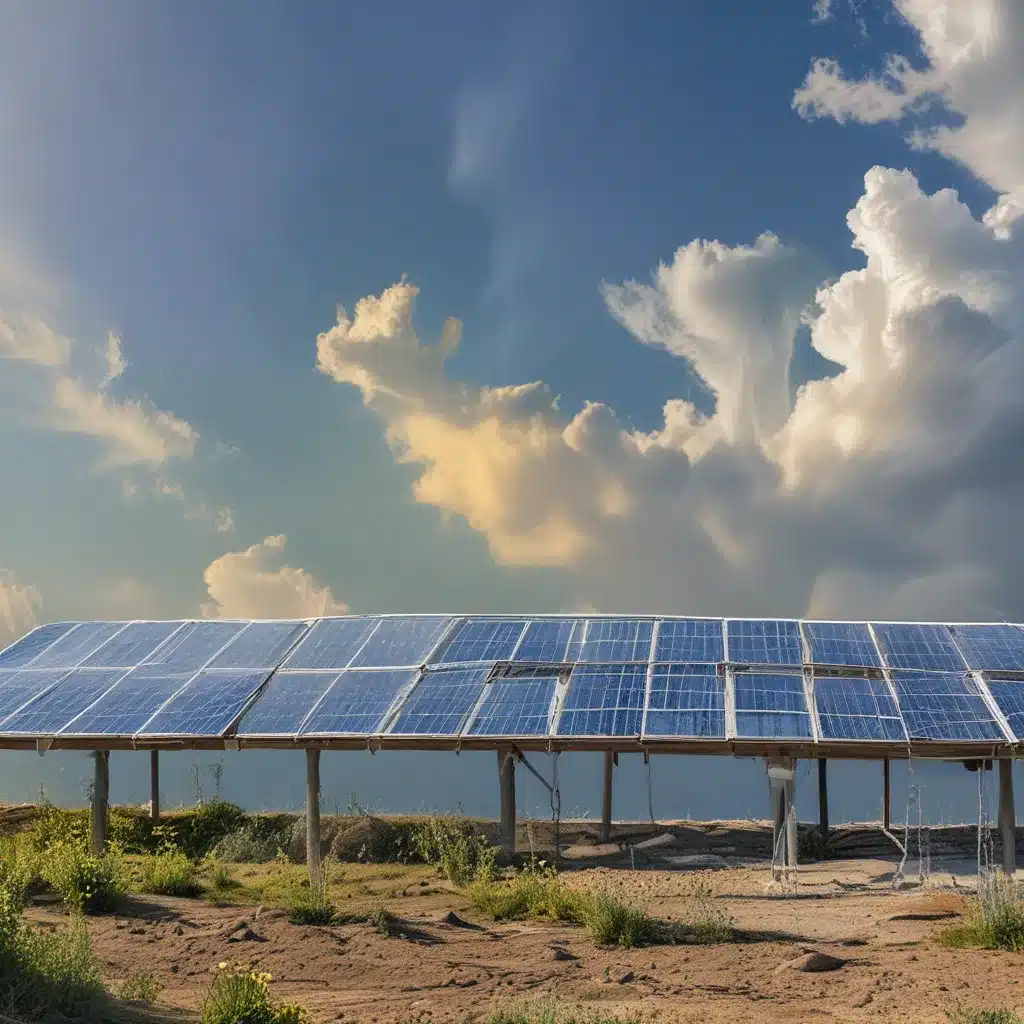
Unlocking the Power of the Sun: How Solar Energy Can Change Your Home’s Footprint
Picture this: you’re sitting in your living room, sipping on a refreshing iced tea, watching the sun’s rays dance across your rooftop solar panels. As you watch the meter on your energy bill tick down, a sense of satisfaction washes over you. Not only are you saving money on your electricity costs, but you’re also doing your part to protect the environment.
This isn’t some futuristic fantasy – it’s the reality that more and more homeowners are experiencing as they make the switch to solar energy. And let me tell you, the environmental benefits of going solar are truly remarkable.
Reducing Your Carbon Footprint
Let’s start with the big one: greenhouse gas emissions. As we all know, our traditional reliance on fossil fuels for energy has had a devastating impact on the environment, contributing to the ongoing climate crisis. But solar energy is different. According to the U.S. Department of Energy, solar energy has an important role to play in reducing greenhouse gas emissions and mitigating the effects of climate change.
Think about it this way: every kilowatt-hour of electricity you generate from your solar panels is a kilowatt-hour that doesn’t have to come from a coal-fired power plant. And that means fewer tons of carbon dioxide and other harmful pollutants being released into the atmosphere. It’s a simple equation, but the impact can be enormous.
In fact, the Department of Energy estimates that if the United States were to meet its goal of a carbon-free electricity grid by 2035, it could require as much as 57 million acres of land for solar energy development. That may sound like a lot, but it’s actually only about 0.3% of the contiguous United States. And the environmental benefits of that kind of solar energy deployment would be staggering.
Improving Air Quality and Reducing Water Use
But the benefits of solar energy go beyond just reducing greenhouse gas emissions. According to the Department of Energy, solar energy can also improve air quality and reduce water use from energy production.
Think about it – traditional power plants, whether they’re fueled by coal, natural gas, or even nuclear energy, require massive amounts of water to operate. And that water often gets contaminated with all sorts of nasty chemicals and pollutants. But solar panels? They don’t need any water to generate electricity. Zero. Zilch. Nada.
And when it comes to air quality, solar energy is a game-changer. By reducing our reliance on fossil fuels, we’re cutting down on the emissions of harmful particulate matter, sulfur dioxide, and nitrogen oxides – the kinds of pollutants that can wreak havoc on our lungs and our environment.
Providing Ecosystem Services
But the environmental benefits of solar energy don’t stop there. According to the Department of Energy, solar energy installations can also provide valuable ecosystem services for the communities they’re located in.
Think about it – those massive solar farms, with their acres of sleek black panels, could actually be providing important services like carbon sequestration, pollination, and better stormwater management. It’s like turning your rooftop into a mini-ecosystem, complete with all the benefits that come with it.
And when it comes to the wildlife and habitats that might be affected by these solar installations, the Department of Energy is working hard to ensure that the impact is minimized. Through research and collaboration with stakeholders, they’re developing strategies and technologies that can help solar developers site and manage their projects in a way that protects the local environment.
The Bigger Picture: Solar Energy and Environmental Justice
But the environmental benefits of solar energy go even deeper than that. According to the Department of Energy, their research on solar energy and the environment includes a strategic focus on equity and environmental justice principles.
You see, the benefits of solar energy aren’t just about reducing our carbon footprint or protecting wildlife habitats. It’s also about ensuring that the natural resources we all depend on – like clean air, clean water, and healthy ecosystems – are accessible to everyone, regardless of their socioeconomic status or where they live.
That’s why the Department of Energy is working to engage with underserved communities, to make sure that the research and strategies they develop are aligned with the values and needs of those communities. It’s about making sure that the environmental benefits of solar energy are enjoyed by all, not just the privileged few.
The Bottom Line: Solar Energy is a Win-Win-Win
So there you have it – the environmental benefits of solar energy are truly staggering. From reducing greenhouse gas emissions and improving air quality to providing valuable ecosystem services and promoting environmental justice, solar energy is a game-changer.
And the best part? By making the switch to solar energy for your home, you can be a part of this incredible transformation. You can reduce your carbon footprint, save money on your energy bills, and feel good knowing that you’re doing your part to protect the planet.
It’s a win-win-win situation, if you ask me. And that’s why I encourage you to check out Solar A Systems Inc. and see how they can help you harness the power of the sun for your home. Because when it comes to the environment, every little bit counts.


